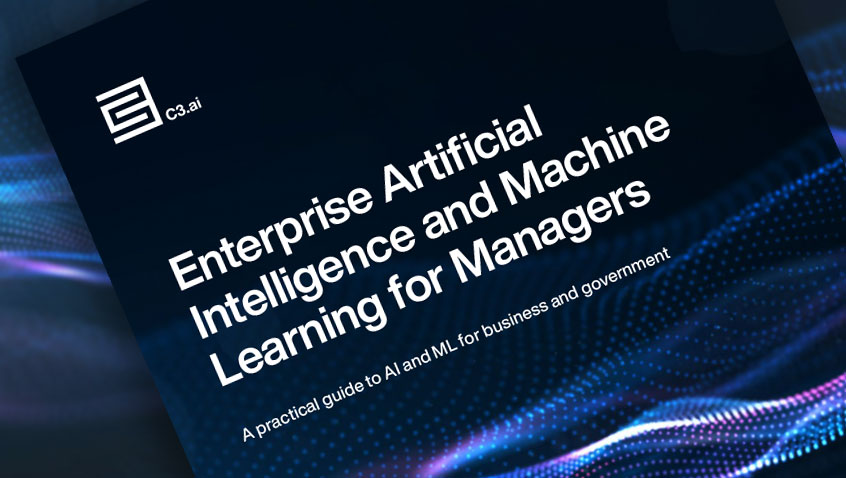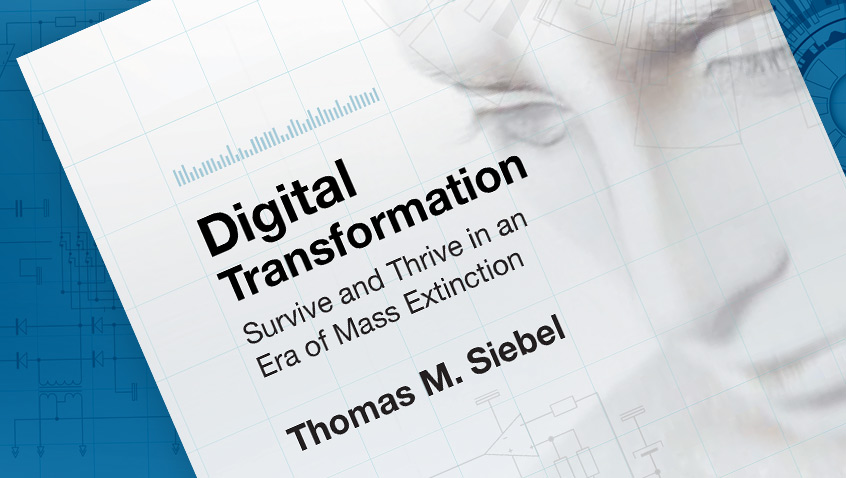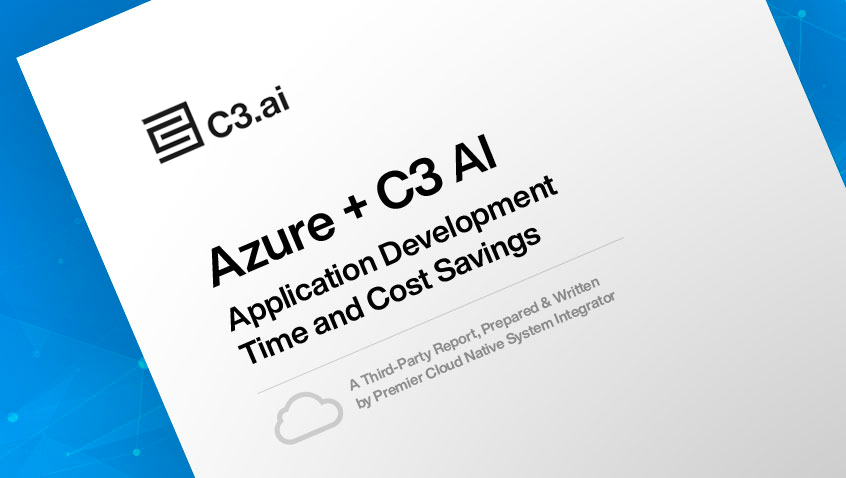- AI Software
- C3 AI Applications
- C3 AI Applications Overview
- C3 AI Anti-Money Laundering
- C3 AI Cash Management
- C3 AI Contested Logistics
- C3 AI CRM
- C3 AI Decision Advantage
- C3 AI Demand Forecasting
- C3 AI Energy Management
- C3 AI ESG
- C3 AI Health
- C3 AI Intelligence Analysis
- C3 AI Inventory Optimization
- C3 AI Process Optimization
- C3 AI Production Schedule Optimization
- C3 AI Property Appraisal
- C3 AI Readiness
- C3 AI Reliability
- C3 AI Smart Lending
- C3 AI Supply Network Risk – bak
- C3 AI Turnaround Optimization
- C3 Generative AI Constituent Services
- C3 Law Enforcement
- C3 Agentic AI Platform
- C3 Generative AI
- Get Started with a C3 AI Pilot
- Industries
- Customers
- Events
- Resources
- Generative AI for Business
- Generative AI for Business
- C3 Generative AI: How Is It Unique?
- Reimagining the Enterprise with AI
- What To Consider When Using Generative AI
- Why Generative AI Is ‘Like the Internet Circa 1996’
- Can the Generative AI Hallucination Problem be Overcome?
- Transforming Healthcare Operations with Generative AI
- Data Avalanche to Strategic Advantage: Generative AI in Supply Chains
- Supply Chains for a Dangerous World: ‘Flexible, Resilient, Powered by AI’
- LLMs Pose Major Security Risks, Serving As ‘Attack Vectors’
- What Is Enterprise AI?
- Machine Learning
- Introduction
- What is Machine Learning?
- Tuning a Machine Learning Model
- Evaluating Model Performance
- Runtimes and Compute Requirements
- Selecting the Right AI/ML Problems
- Best Practices in Prototyping
- Best Practices in Ongoing Operations
- Building a Strong Team
- About the Author
- References
- Download eBook
- All Resources
- Publications
- Customer Viewpoints
- Blog
- Glossary
- Developer Portal
- Generative AI for Business
- News
- Company
- Contact Us
Glossary
- Artificial Intelligence
- AI Agents
- AI in Finance
- AI in Manufacturing
- Anomaly Detection
- Anti-Money Laundering
- Asset Performance Management
- Asset Reliability
- Demand Forecasting
- Digital Disruption
- Digital Transformation
- Digital Twin
- Elastic Cloud Computing
- Energy Management
- Enterprise AI
- Enterprise AI Platform
- Ethical AI
- Inventory Planning
- IoT Platform
- Know Your Customer (KYC)
- Machine Vision (Computer Vision)
- Model-Driven Architecture
- Multi-Cloud
- No Code
- Predictive Analytics
- Predictive Maintenance
- Process Optimization
- Production Scheduling
- Stochastic Optimization
- Supply Chain Management
- Type System
- Data Unification & Management
- Machine Learning (A to L)
- Artificial General Intelligence
- Bias
- Canonical Schema
- Canonical Transform
- Classification
- Classifier
- Classifier Performance
- Clustering
- Coefficient of Discrimination, R-Squared (R2)
- Convolutional Neural Network (CNN)
- Correlation
- Data Cleansing
- Data Labels
- Data Lineage
- Deep Learning
- Dimensionality Reduction
- Explainable AI
- F1 Score
- False Positive Rate
- Feature Engineering
- Feedback Loop
- Field Validation
- Gaussian Mixture Model (GMM)
- Generalized Linear Models
- Gradient-Boosted Decision Trees (GBDT)
- Features
- Ground Truth
- Holdout Data
- Hyperparameters
- Information Leakage
- LIME: Local Interpretable Model-Agnostic Explanations
- Linear Regression
- Loss Function
- Low-Dimensional Representation
- Machine Learning (M to Z)
- Mean Absolute Error
- Mean Absolute Percent Error
- Machine Learning Pipeline
- Model Drift
- Model Prototyping
- Model Training
- Model Validation
- Normalization
- Overfitting
- Precision
- Problem Tractability
- Random Forest
- Recall
- Receiver Operating Characteristic (ROC) Curve
- Regression Performance
- Regularization
- Reinforcement Learning
- Reporting Bias
- Ridge Regression
- Root Mean Square Error (RMSE)
- Selection Bias
- Shapley Values
- Supervised Machine Learning
- Tree-Based Models
- Underfitting
- Unsupervised Machine Learning
- XGBoost
Digital Transformation
What is Digital Transformation?
Digital transformation is the use of 21st century information technologies – elastic cloud computing, big data, the internet of things, and artificial intelligence – to drive step function improvements in business processes across an organization’s entire value chain. Digital transformation enables organizations to increase business flexibility and resilience, decrease costs, improve profitability, reduce environmental impact, enhance customer satisfaction, and deliver greater economic and social value to stakeholders.
Enterprise AI is a core enabler of digital transformation. Recent breakthrough innovations in AI and machine learning – along with capabilities provided by elastic cloud computing, big data, and the internet of things – enable the development of a new class of enterprise AI applications that can solve previously unsolvable problems to materially improve business operations. Shell, for example, is harnessing enterprise AI to create AI-driven predictive maintenance applications that can monitor the real-time health of more than 500,000 valves across its global operations, providing an early warning alert system that notifies operators in advance of costly and potentially dangerous valve failures.
Why is Digital Transformation Important?
Organizations across all industries face an increasing threat of disruption by digitally enabled competitors. Classic examples include disruption of the retail industry by Amazon and other digital-native competitors and disruption of the personal transportation industry by companies such as Uber and Lyft. These new competitors employ digital technologies to create new business models and capabilities to disrupt industry incumbents. To survive the threat of digital disruption in their industry – and to compete and thrive in the 21st century digital economy – it is imperative for existing organizations to digitally transform.
Digital transformation, however, is a challenging undertaking. McKinsey estimates that fewer than 20 percent of organizations are successful. The technical and organizational challenges in a digital transformation are significantly complex. Industry incumbents have many advantages over potential digital disruptors, including massive amounts of current and historical operational data, large customer bases, extensive distribution networks, and valuable existing assets. The key is to unlock the value that lies hidden in the data to achieve meaningful impact on efficiency, profitability, safety, environmental impact, and customer satisfaction.
How C3 AI Helps Organizations with Digital Transformation
C3 AI provides leading enterprise AI technology to drive and accelerate digital transformation, enabling the world’s largest organizations to achieve step-function improvements across their business processes by extracting new value from their data. C3 AI provides the C3 AI® Platform, a complete, end-to-end platform for designing, developing, deploying, and operating enterprise AI applications at industrial scale. With the C3 AI Platform, organizations can accelerate development of enterprise AI applications on cloud platforms including AWS and Azure 25-fold, and deploy in one-tenth the time of other approaches.
C3 AI also delivers a portfolio of prebuilt, SaaS enterprise AI applications for a growing number of use cases such as C3 AI Reliability, C3 AI Inventory Optimization, C3 AI Fraud Detection, C3 AI Anti-Money Laundering, and more. Some of the world’s largest organizations – including Shell, the US Department of Defense, and Koch Industries – use C3 AI technology to drive digital transformation initiatives that significantly reduce costs, increase asset availability and reliability, improve human safety, and enhance customer satisfaction.



